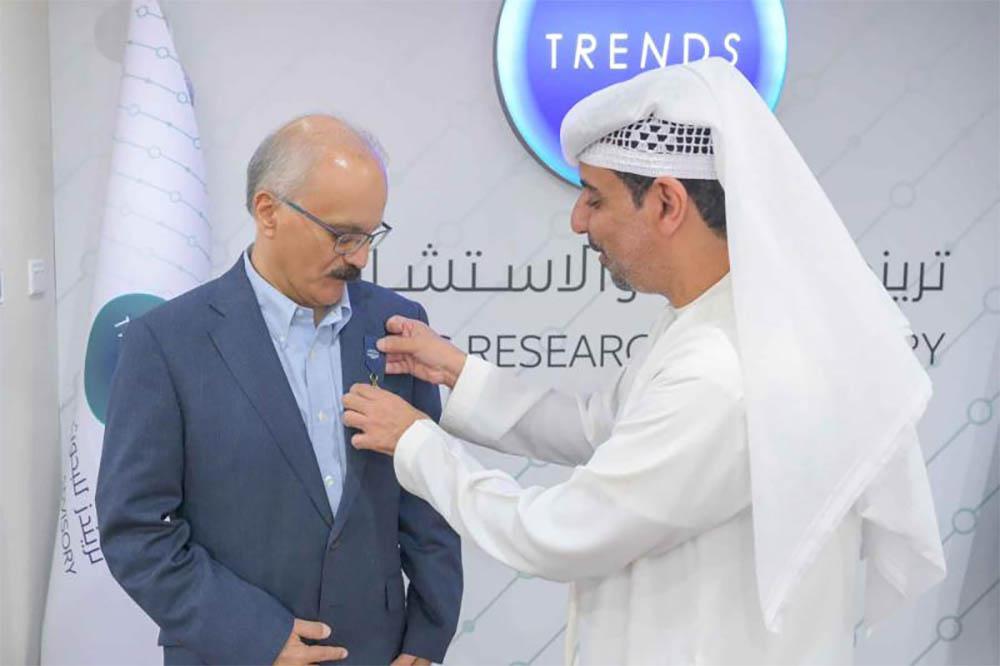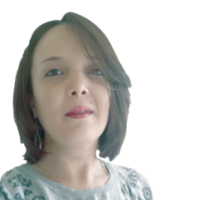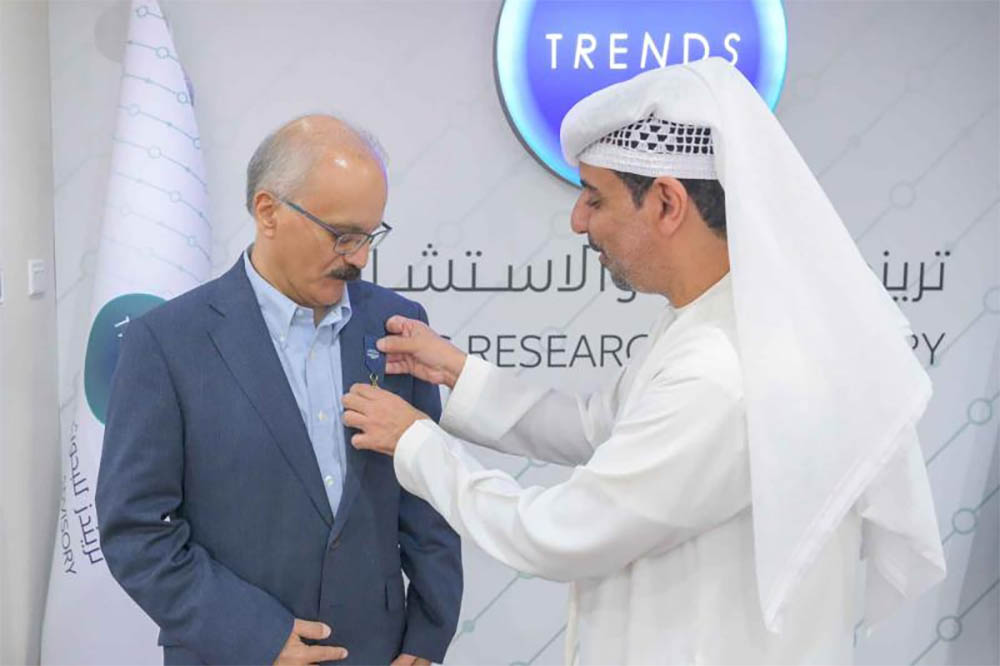Dr Haitham El-Zobaidi, never loud but a man of consequence
The journalist, the mentor, the guide, the friend and the best human being I have ever known, Dr Haitham El-Zobaidi has passed away. Saturday’s news of his passing was not shocking because over the span of the last five years, he had spoken to me about his disease, the fatigue, the pain and the weight loss. Actually, the news was not shocking but rather devastating and shattering to the point of disbelief, though I knew, and he made sure I was prepared.
For me, Dr Haitham or Dr H, like I used to call him at times to gently annoy him, was a superman, a saviour and a knight in shining armour, the kind of hero, who has been here and will always be here, for me and for all those, who loved him and whom he loved, in return. He was generous, a good listener, and always ready to help everyone, literally every single person.
But, “this is life. We need to stay strong as long as it lasts,” to borrow his words.
When I began my career, I was in my 20s, a young lady, with no experience, little skill and absolutely no idea about the bigger world, the world of politics, technologies and international affairs. I knocked at almost every door at that time, but alas. I had neither acquaintances nor contacts. Then, an opportunity came for a job interview with Al Arab and when no one offered me a chance, Mr Mohammed Houni courageously stepped in and extended a hand for me to begin my journey with Al Arab Publishing House. My mentor at the time was Mr Ali Kassem, the mentor of mentors, as I have always loved to call him . He taught me the basics of journalism and a whole set of skills: How to write a good article, how to read the news, how to develop an analytical and critical spirit.
Over my first years at Al Arab, Mr Houni and Mr Kassem, through their support and steady encouragement, turned the young lady with no experience at all into someone more confident and surely more independent, when it comes to views and positions. They helped me become who I am today and gave me a voice when few men across our Arab region, even today, do give a woman a voice.
In a few words, Al Arab Publishing House, since the days of the founder the late Haj Ahmed Salhine El Houni, has been not my work place but my home and refuge, a second family, a family that I chose again and again because no place in the world, even better or more prosperous, feels like home.
And if I am speaking extensively about Al Arab today, I do so because I know how much it meant for Dr Haitham. It was his home and his refuge too. It was a dream come true.
When I first spoke to Dr Haitham in late 2011, the year when Al Arab Publishing House witnessed one of the worst crises ever, following the regional instability triggered by the Arab uprisings at that time, I was at my lowest and he gave me hope. He told me that he devised a new strategy to save the media group and it was clear, right from the beginning, that he was a visionary who was not afraid of change.
Though I was hesitant back then, he talked me into helping with the Middle East Online (MEO). At that time, we used to speak on a daily basis and we figured that we saw eye to eye on main political issues, particularly regarding the need to stand firm and use our words to fight the wave of extremist ideologies that were sweeping the Arab region at the time.
A believer in freedom, the genuineness of Arab identity and the power of words when it comes to creating a better future for the region, he never imposed his opinion nor instructed us to write something that goes against our beliefs and principles.
When I joined MEO, he simply asked me to focus on in-depth news analysis in a web-first environment, with tasks that include copy editing and SEO headline writing while collaborating with other editors.
Behind the scene of the day-to-day work, he would chat with me about my family, my mother in particular and share anecdotes and jokes because he simply loved jokes. Yet, behind every anecdote and every joke, there was a lesson in disguise. Actually, he had his way with words, which he playfully and smoothly used to create light bulb moments. He was never loud. He would rather quietly change something deep within a person, a group of people or even a community. That is what I admired about him: Never loud but a man of consequence, never rigid but committed to his work, passion and employees.
A proud Iraqi, he was eloquent, well-composed but highly sensitive. He was a lover of Tunisia and an admirer of the Arab Gulf region, particularly the United Arab Emirates, a country that managed to emerge as an important economic hub and global leader in technological innovation while preserving heritage and tradition.
After a few years with MEO, he asked me to join The Arab Weekly, while we were on a mission together in Al Dhafra in Abu Dhabi. Back then, he came to know me very well. I was in my thirties and he was in his late forties. We used to joke about age and he would say, “You are still thirsty for new experiences but I am completely faulty now and a few things if at all would impress me.” To that, I would answer, begging him for some stability, or what I used to call “stability.” Now, he is not with us, I find the courage to say what I was afraid of before I knew him: Change used to scare me. The winds of change, mild or wild, were never my cup of tea.
Little I knew, joining The Arab Weekly was an upgrade to my career and experience as an editor and a journalist. There I came to know another great man and an exceptional mentor, Mr Oussama Romdhani, who took me from the web-first environment to the world of printed media and taught me how to help lead a packed newsroom that covered political and business trends as well as general news. With Mr Oussama, I watched, I learned and I am still learning from the best how to supervise copy editors and page editors who produce weekly sections on politics, social issues, cultural affairs, economy and more.
Now as I write this text in the memory of Dr Haitham, a light bulb moment comes by: Dr Haitham had been pushing me to get rid of my fears, accept change and always go ahead. He was actually teaching me how to beat my worst enemy in order to evolve and become a better version of myself.
The last time I saw him was in January. He came to my house with Mr Oussama to offer their condolences for the passing of my father, whom I lost in late December. His presence gave me comfort and for a moment, despite my grief, I felt happy because he was there.
To be honest, my emotions were quite hard for me to figure out. I saw he was tired and knew that the illness, that we talked about many times but never named, had taken its toll. In my eyes, that night, I felt that he searched for a mirror that I blurred on purpose because he taught me pride, courage and consideration.
Deep inside, I knew that we were about to part ways but prayed to God for a miracle. Five months after losing my father, here I am, enduring the loss of my second father. May he rest in peace. He was an angel in disguise and I believe angels belong to heaven.
Wherever you are, Dr Haitham, I kept my promise of standing by your side till the end and you kept your promise of never letting me down. And despite it all, ups and downs, good or bad, life or death, your legacy will live on.







